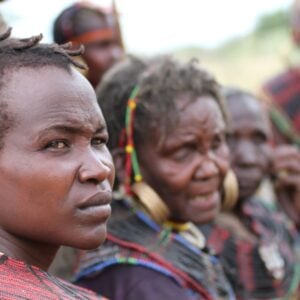The Member States of the WHO South-East Asia Region have adopted the Colombo Declaration on ‘Healthy Ageing through Strengthened Primary Health Care’, addressing the health and well-being of the region’s ageing population, which is expected to nearly double by 2050. The declaration was endorsed during a ministerial round table attended by Health Ministers, senior representatives, WHO Director-General Dr. Tedros Adhanom Ghebreyesus, regional experts, and Dr. Catharina Boehme, Officer-In-Charge for WHO South-East Asia, who emphasized that healthy, functional older people are vital assets to families, communities, and economies. The declaration highlights primary health care as the most inclusive and efficient pathway to achieving universal health coverage, ensuring older people can live long, productive, and meaningful lives.
The Colombo Declaration calls for embedding healthy ageing in national policies and PHC-oriented health systems, providing accessible, equitable, integrated, and age-responsive services across the continuum of care—from health promotion and prevention to rehabilitation, long-term care, and palliative services. It aligns with the Regional Strategy for Healthy Ageing 2024–2030, which prioritizes combating ageism, fostering enabling environments, delivering integrated person-centred care, and ensuring access to long-term care.
To strengthen the health and care workforce, the Declaration emphasizes building geriatric and gender-sensitive competencies, supporting paid and unpaid caregivers, and enabling multidisciplinary, community-based teams to provide quality care at all stages of ageing. Member States committed to prioritizing adequate resource allocation through innovative financing, public-private partnerships, and cross-ministerial cost-sharing mechanisms to support financial protection and universal health coverage.
The Declaration also calls for integrated, rights-based, person-centered, and gender-sensitive care tailored to older people’s needs, preferences, and choices. It advocates strengthening data systems to inform and monitor programs and leveraging digital health innovations to improve access, efficiency, and quality of care. Member States pledged to combat ageism through laws, inclusive policies, public sensitization, education, and intergenerational initiatives, fostering respect, dignity, and solidarity across generations.
Recognizing the rapid demographic shift in the region, where the population aged 60 years and above is projected to rise from 11.3% in 2024 to 20.9% in 2050, the Declaration underscores the importance of building inclusive, resilient, and sustainable health and care systems. A preceding Participatory Dialogue on 12 October with older people, caregivers, and community representatives informed the declaration, ensuring that the commitments reflect the lived realities of older populations. Dr. Boehme highlighted that ageing is about “adding life to years,” emphasizing dignity, purpose, and inclusion for older persons.
The adoption of the Colombo Declaration marks a regional commitment to advance healthy ageing, strengthen primary health care, and ensure that older adults can live secure, meaningful, and productive lives, supported by integrated systems and broad-based partnerships.






